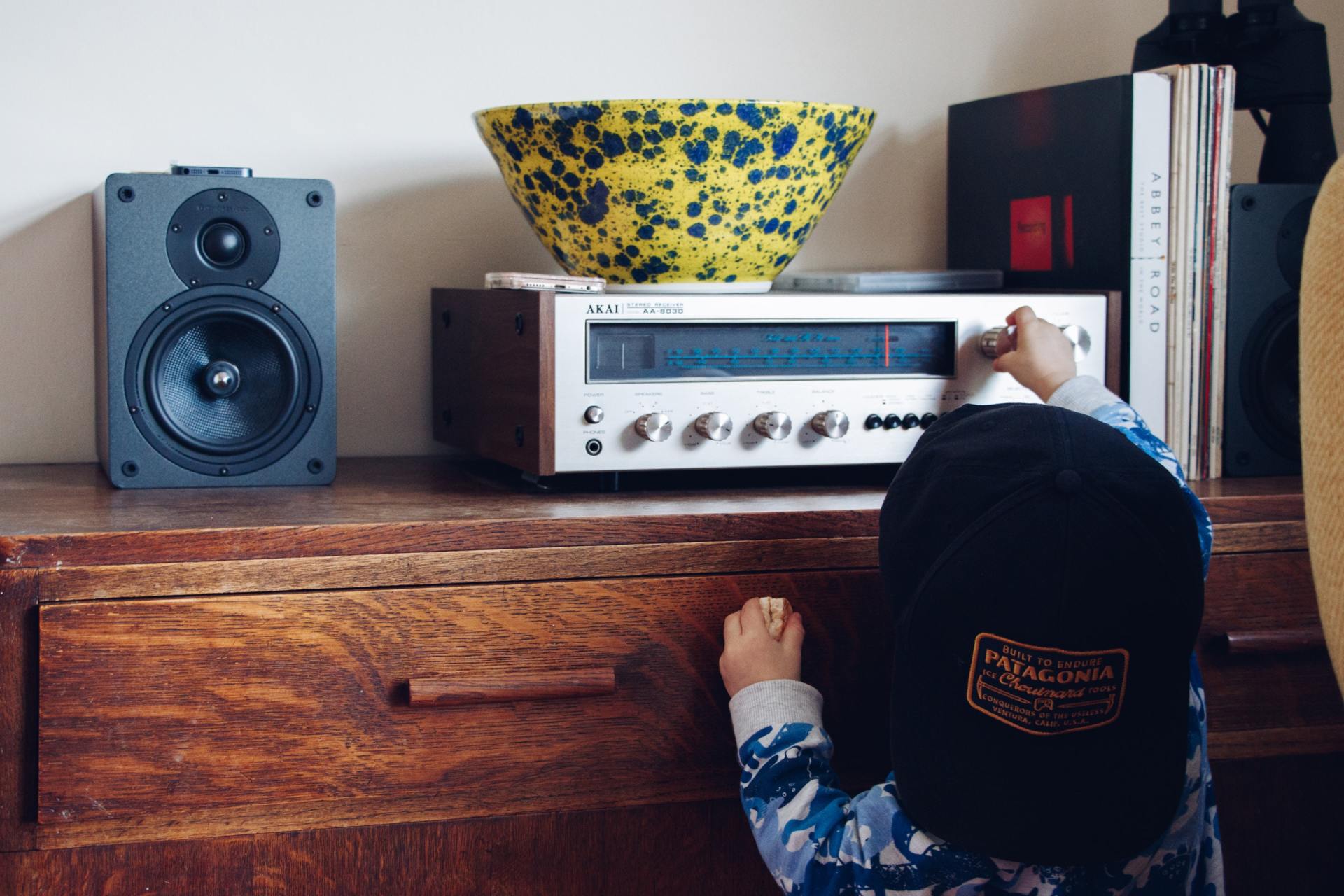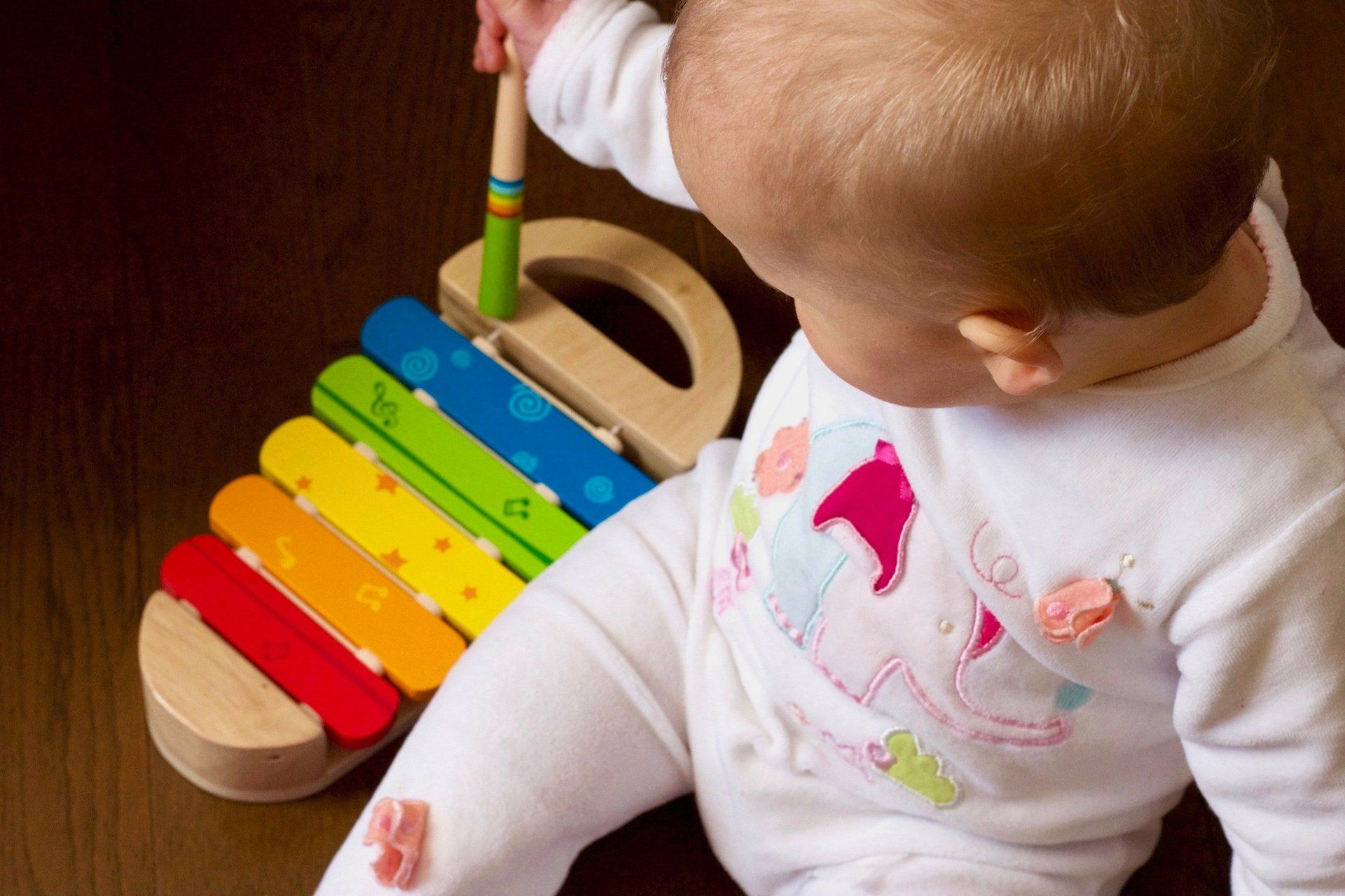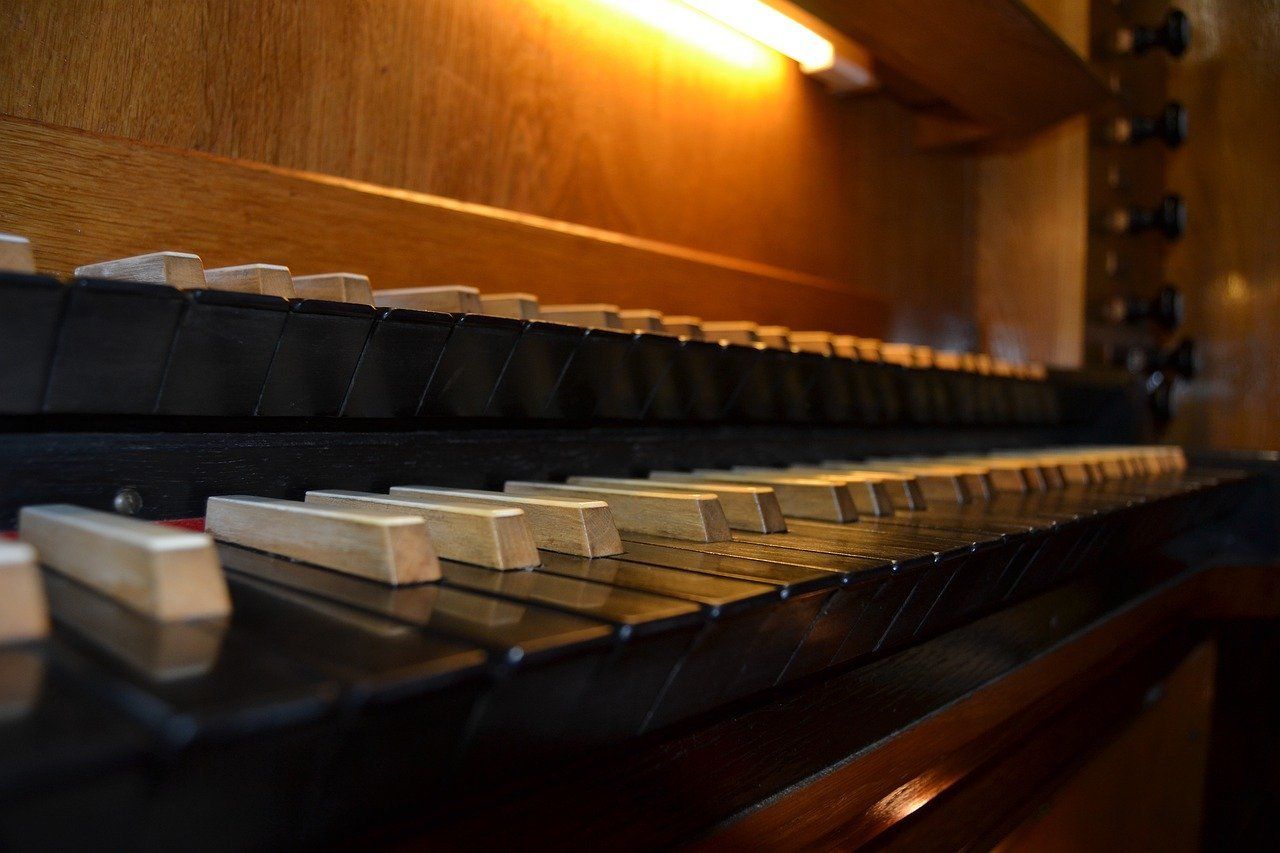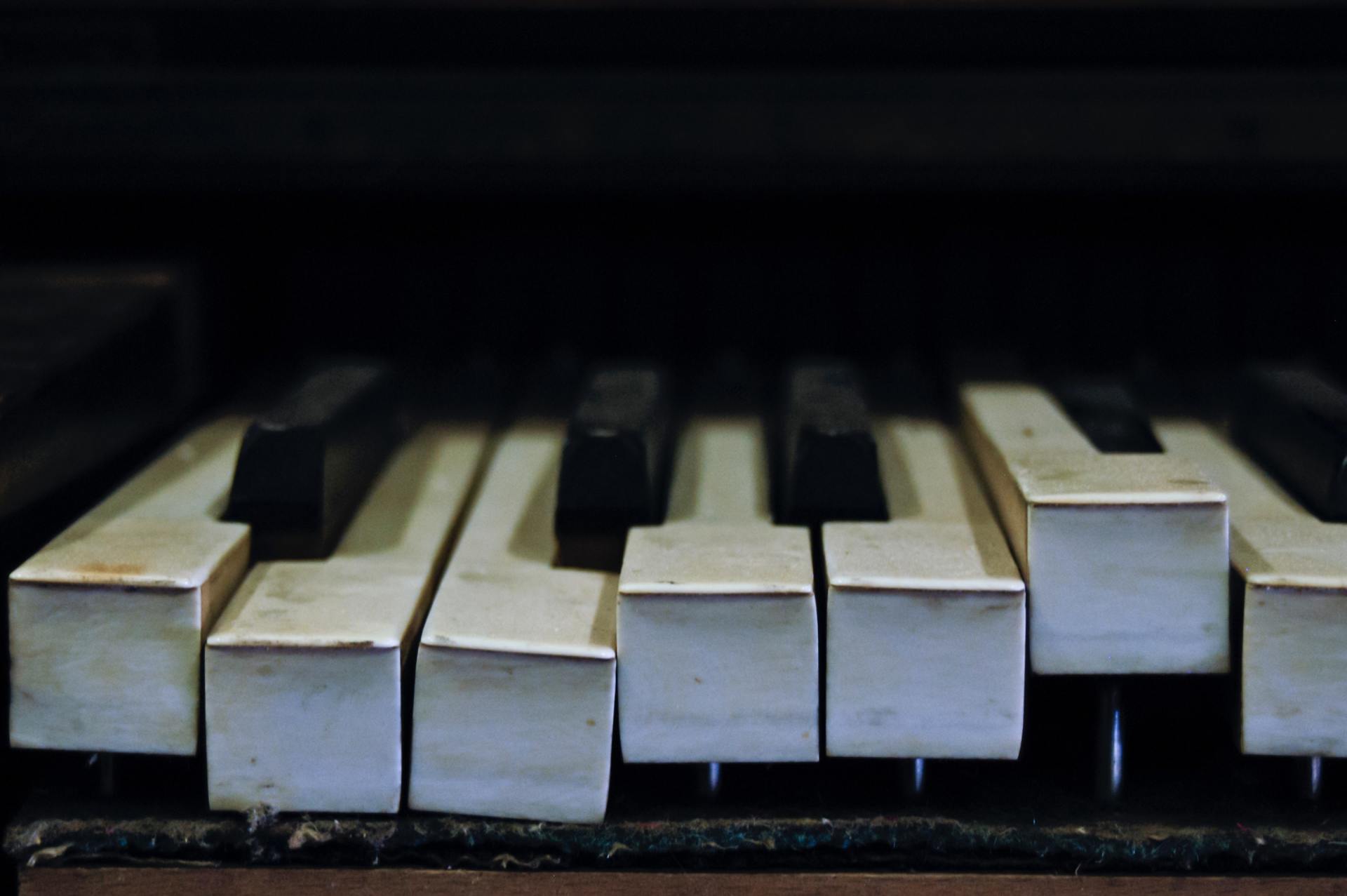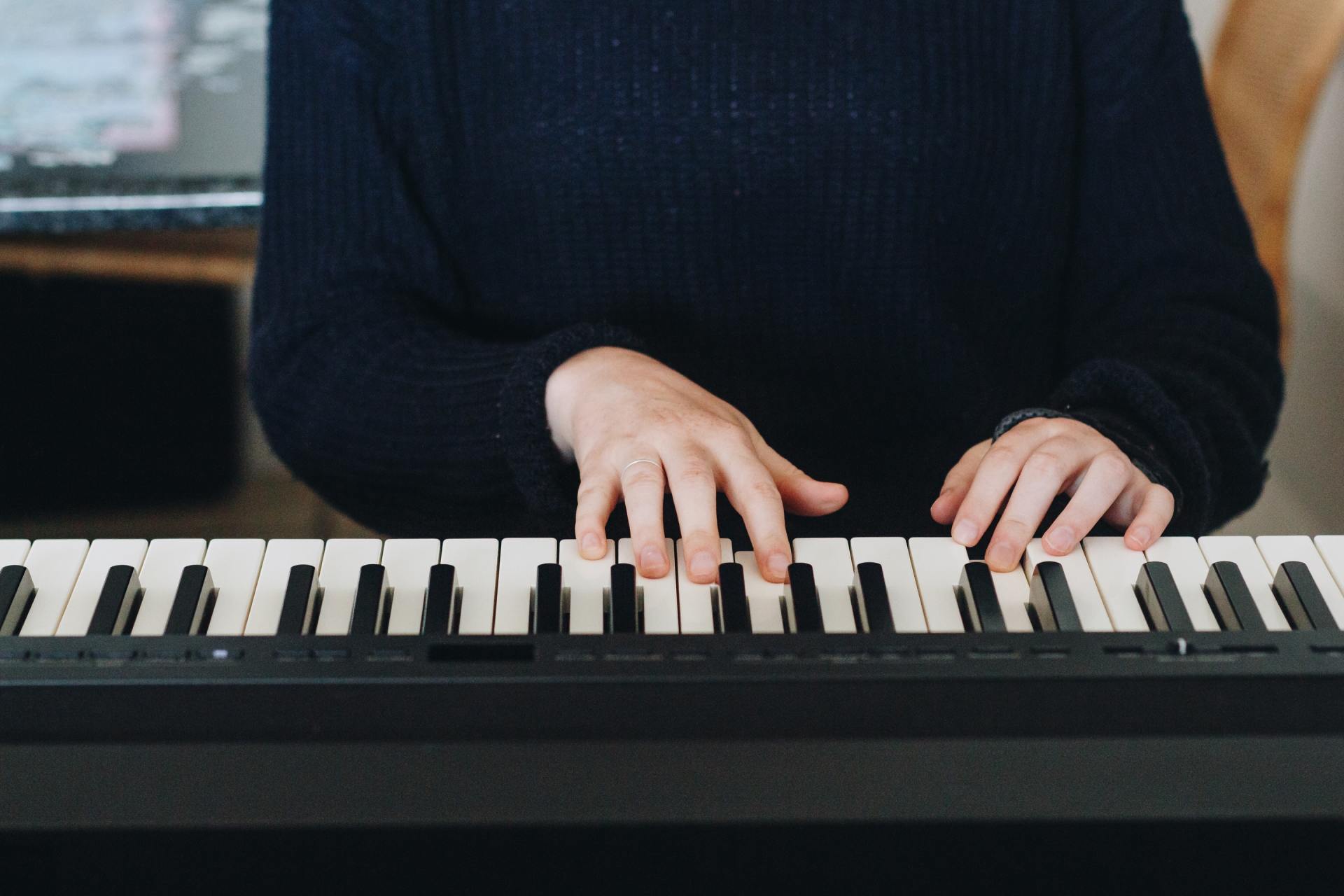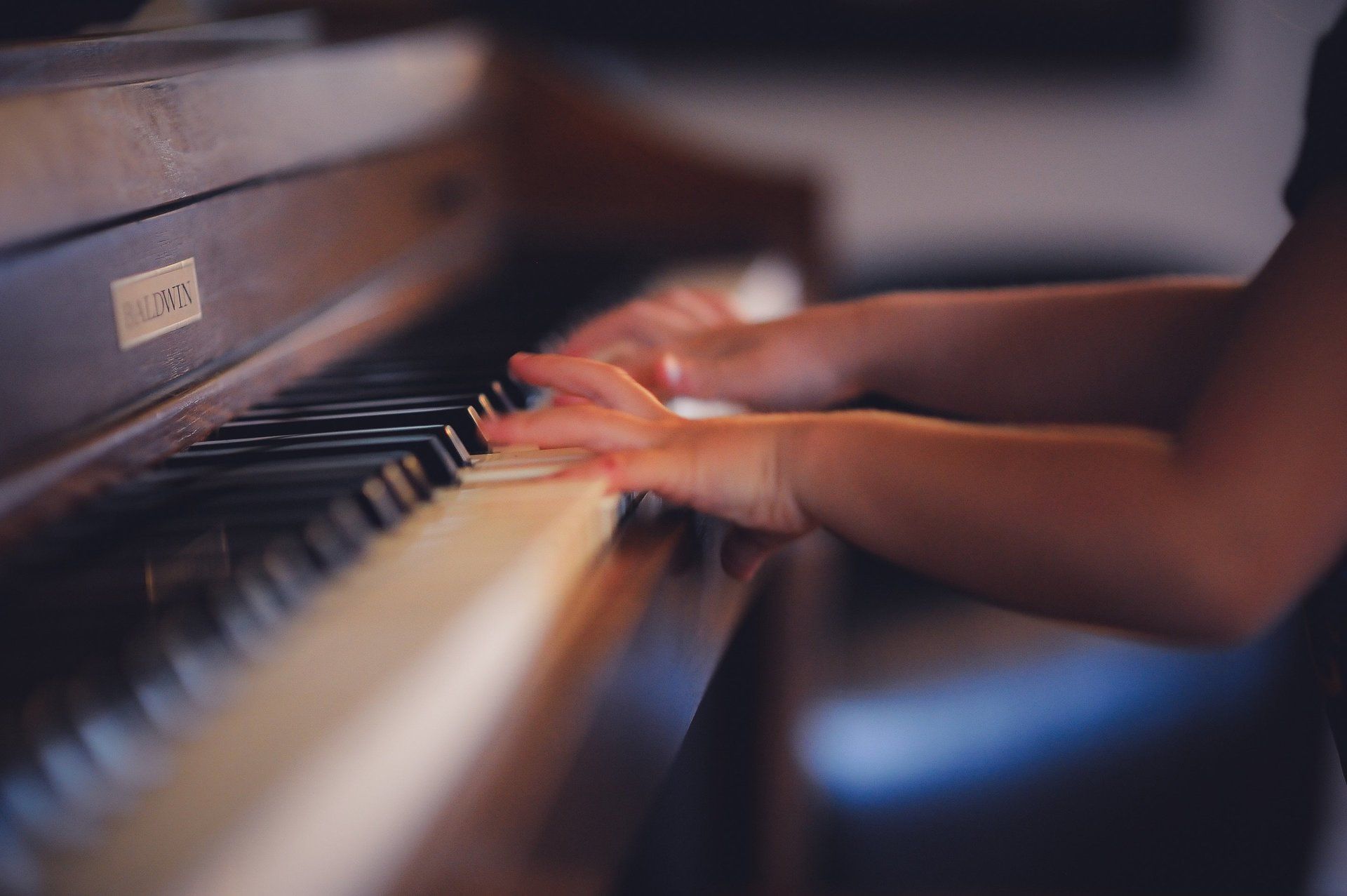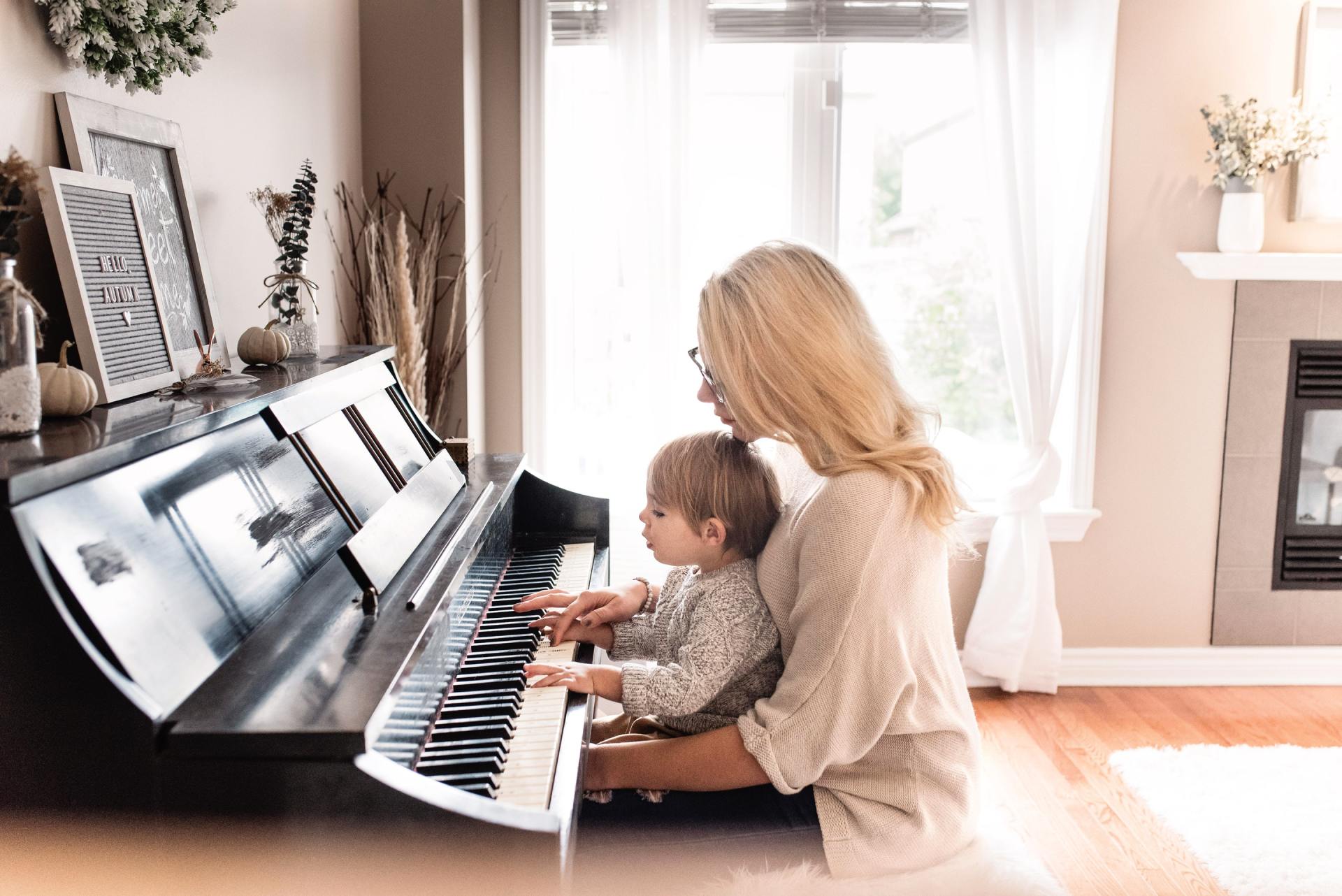The Magic of Encouraging Music in Your Family
Piano & Organ Repair Staff • November 22, 2019
The mental and physical benefits are wonderful!
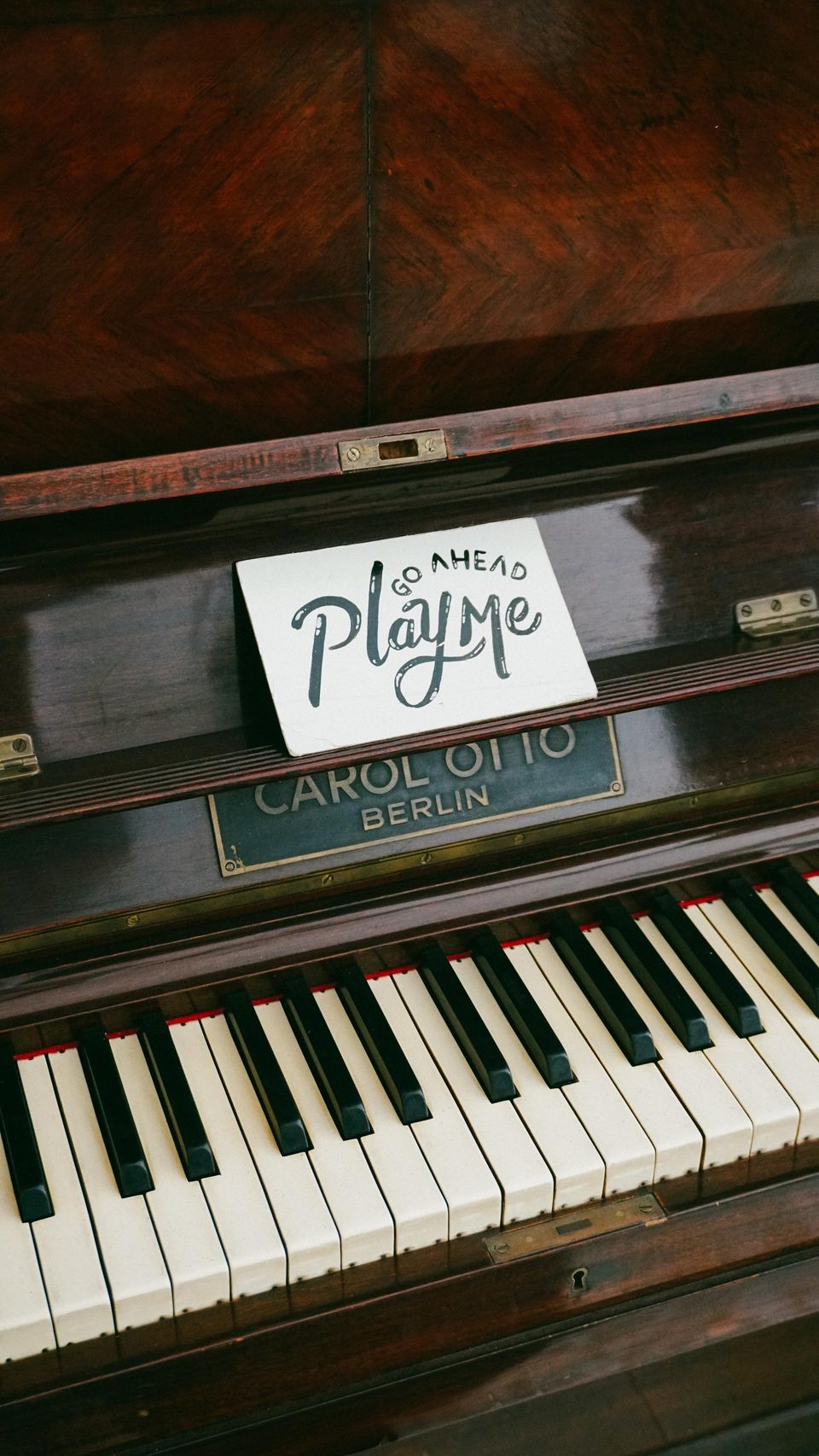
Music is something that seems to come to humankind as a piece of the very soul that makes us human. Whether it be a catchy beat or an intense melody, many people truly feel music, beyond just hearing it. While many people do opt into developing a musical skill through their education, the introduction to the natural magic of music can begin at home.
Encouraging musicality at home provides many benefits to your family members. Many people are bashful about introducing music to their household due to a lack of familiarity with music in a formal setting. Although that is a reasonable concern, music is something that can be shared without a traditional education in the topic.
The benefits of having music playing while your family is spending time together can help to improve the mood of the room. Whether it be because of a little dance that the music encourages, or just the lighthearted lilt of a good bop, music often makes people happy: especially in social situations.
In more intensive applications of music, such as learning an instrument or singing together, can encourage more healthy cognitive functioning in the people involved. While practicing music, blood flow to the brain increases. The cognitive benefits of introducing musicianship to family members include:
- decreasing the risk of dementia and Alzheimer
- reduced prevalence of anxiety and depression
- increased ability to process language and speech patterns.
In a addition to increased blood flow in the moment of performing music, a long lasting relationship with music is shown to actually change the structure of the brain. The presence of gray matter (which aids in memory retention) is notably more prevalent in people with musical training. Another major change is a building of the nerve fibers that bind each hemisphere of the brain together, which results in improved memory, enhanced motor skills, and better thought formation.
All of those benefits see the highest prevalence in children who begin learning music from an early age. Children not only learn pick up the skill faster, but also see the most drastic change to their cognition. Spending as little as a year learning to play an instrument can help build language and motor skills in pre-adolescents.
No matter your age or musical experience, introducing music to your family can benefit your household. The joys of having music playing throughout a home begins with lifting your mood and can end with increased cognitive function through your golden years.
If you or a loved one would like to begin an exploration into the magic of having music become a staple of your family life, we would love to help you take the first step. Keyboard instruments are some of the most popular family instruments the world over - To get in contact with us for a consultation please reach out to us at 607-324-7059 if you are west of Corning NY, or 607-732-9629 if you are east of Corning NY.
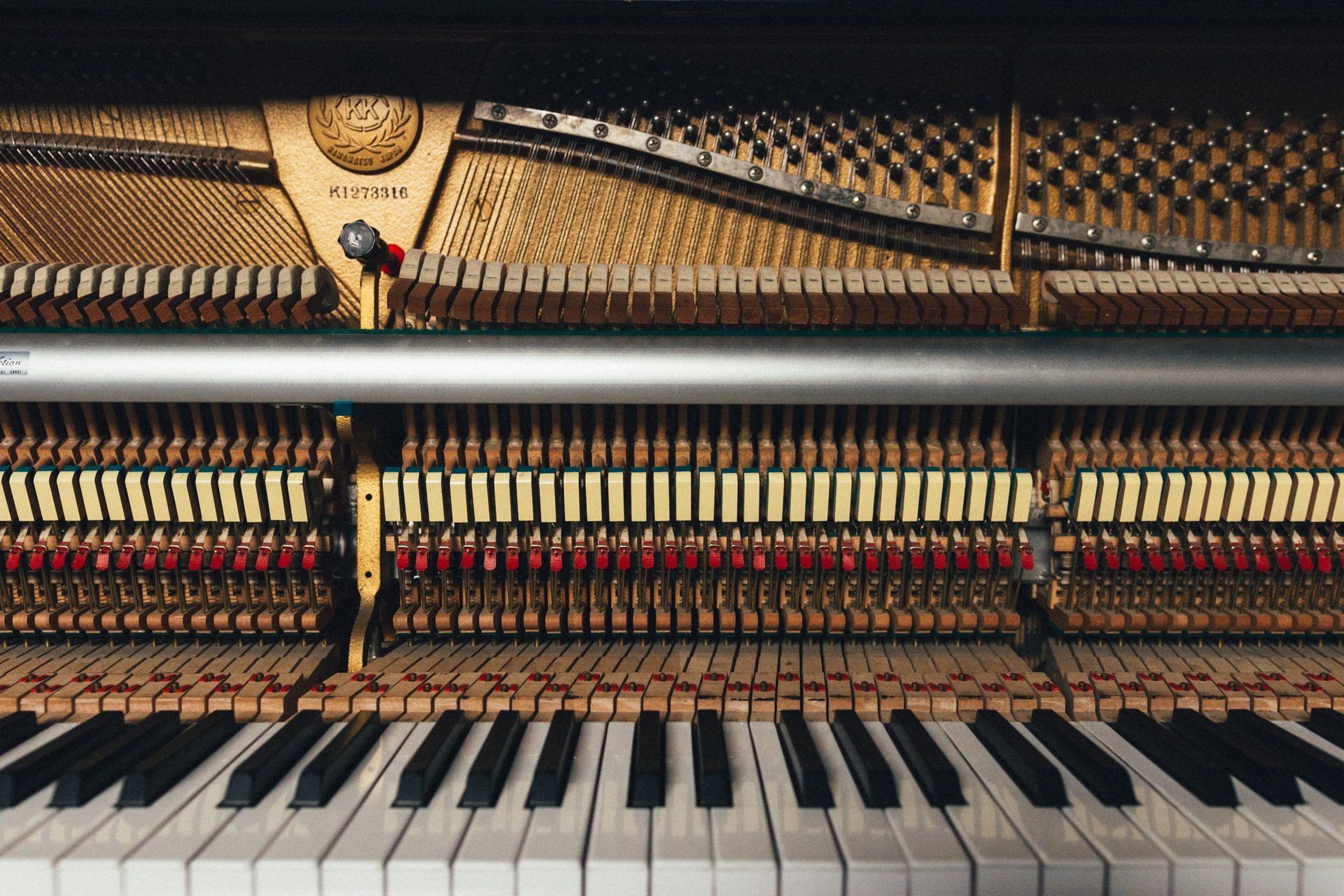
There are plenty of ways to keep our keyboards in good shape, but normal wear and tear will take an inevitable toll; in order to properly maintain your instrument, a maintenance professional is vital. While pianos should be tuned at least once a year, there is likely to be other cause to call for professional help.
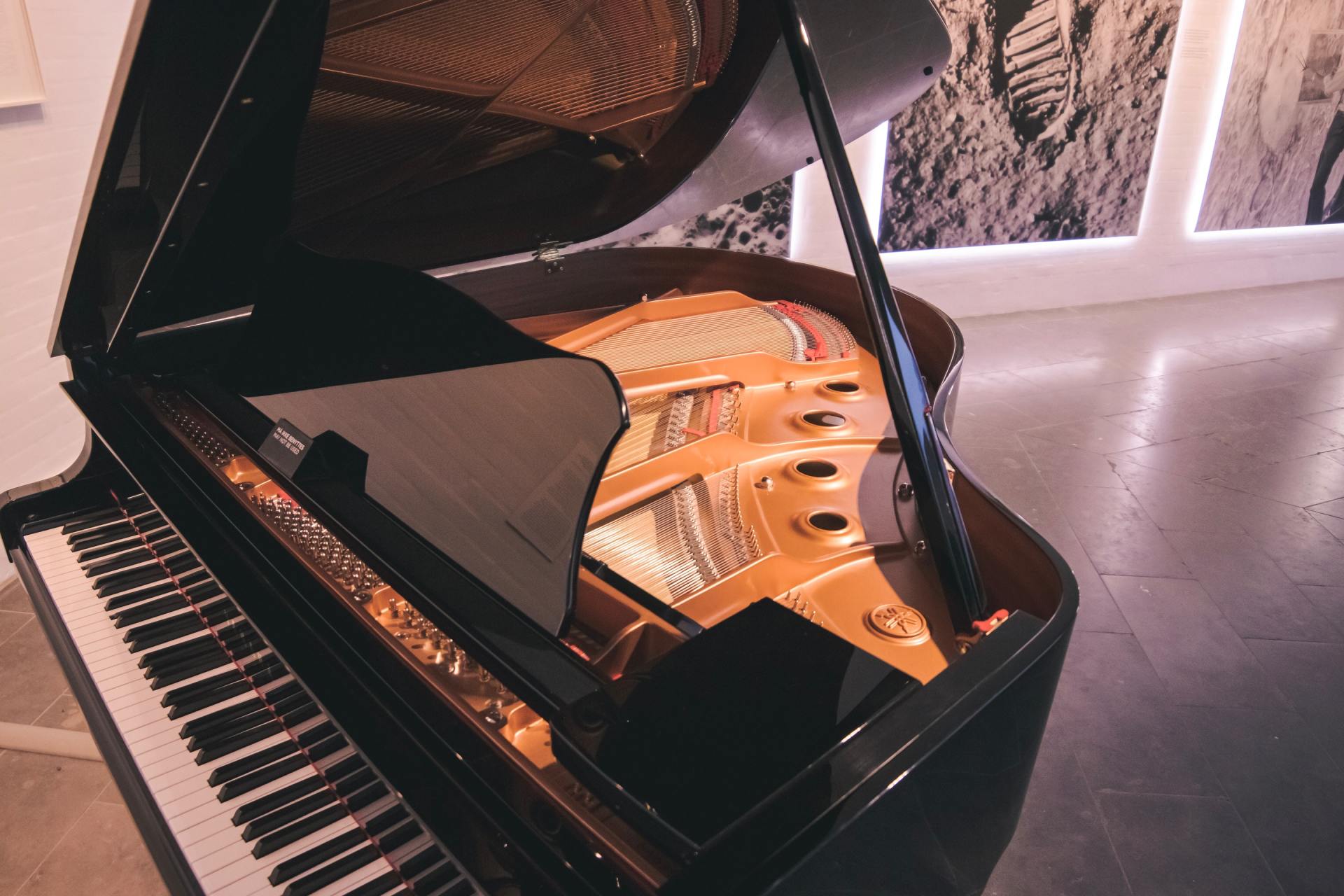
Why Does My Piano Go Out of Tune? Piano strings are under a great deal of tension, which is supported by the frame, plate, pinblock, tuning pins, bridges and soundboard. Anything which effects the position of these parts will cause a change in the tension and make the piano go out of tune. Why Do My Keys Stay Down? Push down on he back end of the key, near the capstan. If both ends of the key go down at once the key is broken. If the back end of the key will not go down, a foreign object, like a crayon has fallen under it. If the back-end of the key goes down and the front comes up, determine if the key or action is sticking. Hold the key down in the back with one hand, raise the whippen with the other hand and release the whippen. If the whippen drops to its resting position properly the key is stuck. If the whippen stays up the trouble is in the action. If the front of a white key binds on the keyslip, remove the keyslip and insert shims made of paper or business card stock in the appropriate places so that the shims will hold the keyslip away from the front end of the keys. Why are My Keys Sluggish? If the piano key plays the action properly, but is slow in coming back up, remove the key and ease both the front & balance rail bushings, or sand spots which bind to the adjacent key. What Should I do About Broken Hammer Shanks? Hammers usually break in the middle. To repair, first remove the butt or flange in a grand piano, in an upright piano use a flange screwdriver. Remember, do not apply excessive pressure to the jack. Apply glue, align the parts and press them together. Remove excessive glue and wrap the joint with heavy thread. The thread may be removed and the shank sanded and cleaned after the glue has dried.

